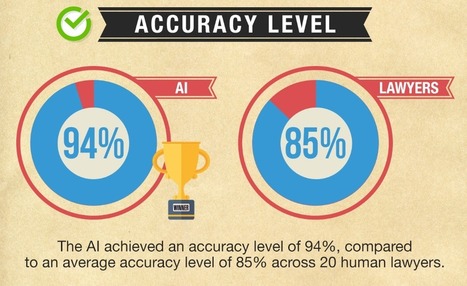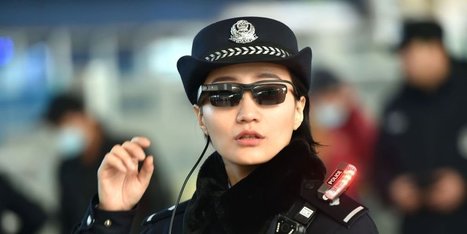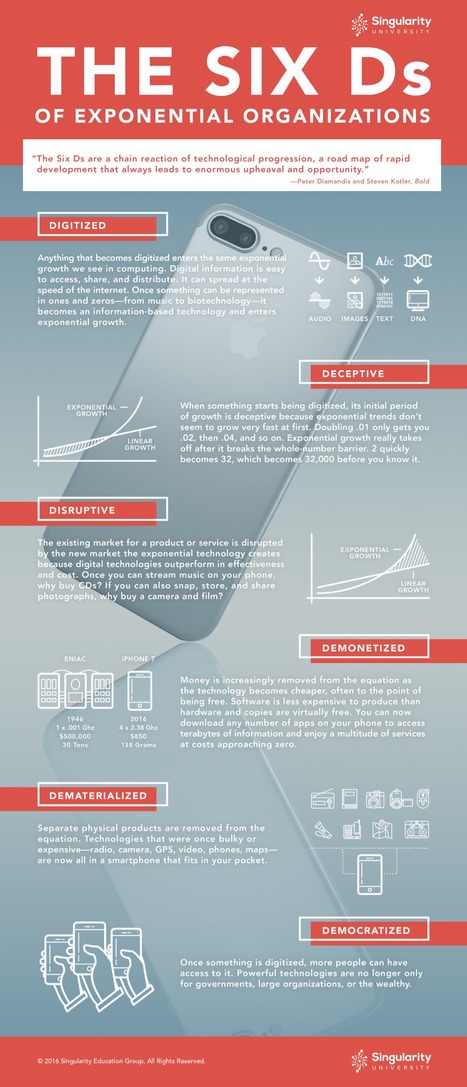Get Started for FREE
Sign up with Facebook Sign up with X
I don't have a Facebook or a X account
 Your new post is loading... Your new post is loading...
 Your new post is loading... Your new post is loading...

Farid Mheir's curator insight,
December 28, 2018 3:48 PM
WHY IT MATTERS: if you study or practice law and plan to retire within the next 10 years, you can move on and not read this one. If you plan to keep working in the field, then you should study programming or develop some other tech skill to remain relevant in the coming years. Consider yourself warned! ;-) 
Nna Prince's curator insight,
January 14, 2019 5:14 AM
Une IA réalise un taux de réussite 94% dans l'analyse de vices cachés dans 5 accords de confidentialité différents en 26 secondes vs 85% pour les meilleurs avocats expérimentés sélectionnés en 92 minutes de moyenne.
Selon WEF la part d'automatisation dans les tâches dites à valeur ajoutée, comme les services juridiques, pourrait dépasser les 52% d'ici à 2025. Il va sans dire que nous vivons une période de transition dont les développements technologiques en cours devraient impacter de manière spectaculaire notre façon de travailler ou de concevoir notre avenir professionnel, ce au cours de la prochaine décennie. 
Nna Prince's curator insight,
January 14, 2019 5:32 AM
Une IA réalise un taux de réussite 94% dans l'analyse de vices cachés dans 5 accords de confidentialité différents en 26 secondes vs 85% pour les meilleurs avocats expérimentés sélectionnés en 92 minutes de moyenne. Selon WEF la part d'automatisation dans les tâches dites à valeur ajoutée, comme les services juridiques, pourrait dépasser les 52% d'ici à 2025. Il va sans dire que nous vivons une période de transition dont les développements technologiques devraient impacter de manière spectaculaire notre façon de travailler ou de concevoir notre avenir professionnel, ce au cours de la toute prochaine décennie.

Farid Mheir's curator insight,
February 11, 2018 11:54 AM
WHY IT MATTERS: face recognition using AI has been around for a few years. It used to require large computers in the cloud. Not anymore. This changes everything. 1) privacy: it will become more and more difficult to protect your privacy in the future. I have written about this before, specifically when the Google glasses came out 3 years ago. It is a concept that is interpreted differently in countries and cultures - such as China vs USA. 2) China: is investing heavily to win the AI war with the US. So we should expect every product - from glasses to door bells to cell phones to cars - to have face recognition built into the device in the very near future. At the CES2018 show, I saw a number of companies that offer face recognition chips ready to be embedded at low price into any consumer device. So it *will* happen. More on China in a later post... 3) protection: people will naturally want to protect themselves. We should start to see face masks that are designed to fool face recognition hardware as has been shown to be possible recently. More reading: - google glasses face recognition: http://fmcs.digital/blog/kodak-cameras-banned-in-the-1880s-over-loss-of/ - CES security cameras: http://plus.lapresse.ca/screens/9ee3fba2-dd87-42c4-ae7c-b2478b752ec3%7C_0.html (in french) - fooling face recognition: https://motherboard.vice.com/en_us/article/ne43pz/ai-fooling-glasses-could-be-good-enough-to-trick-facial-recognition-at-airports |

Farid Mheir's curator insight,
January 25, 2019 3:32 PM
WHY IT MATTERS: retailers in China are growing fast and exploring new ways to interact with customers through digital means, providing new experiences without the burden of the legacy systems. This article reviews the different solutions Alibaba is exploring to move from being a digital online leader to an omnichannel powerhouse. |















